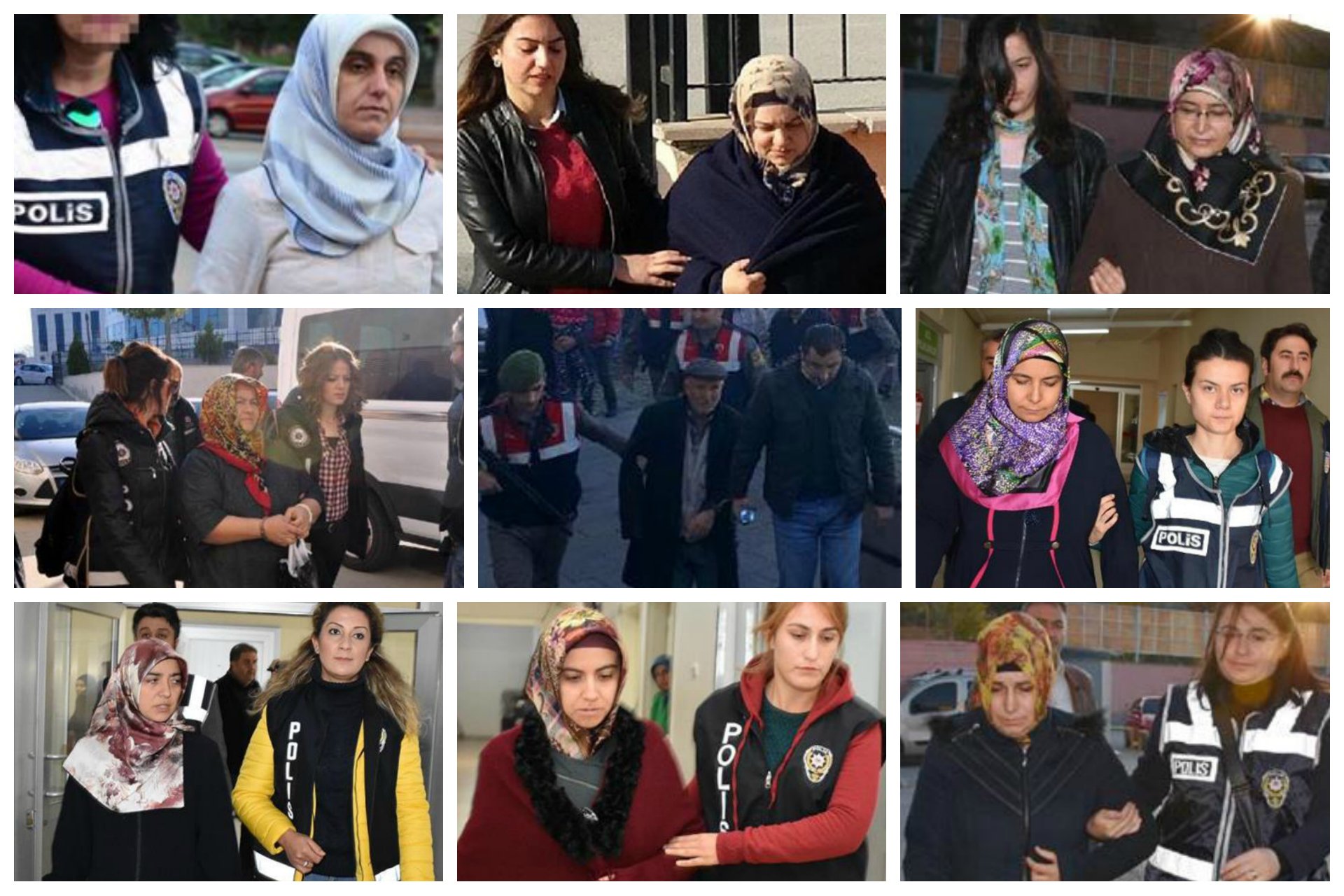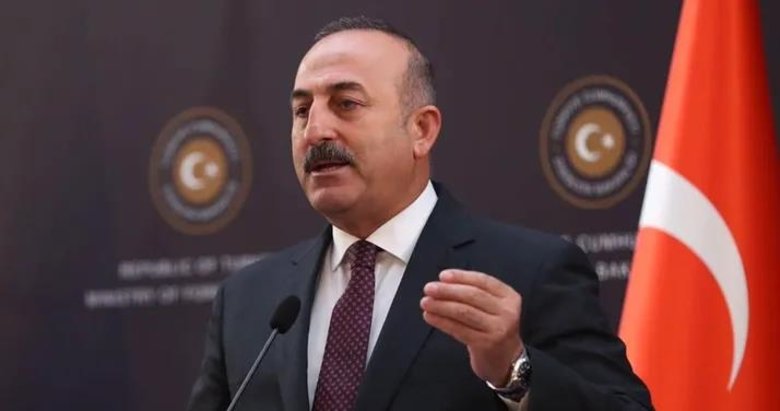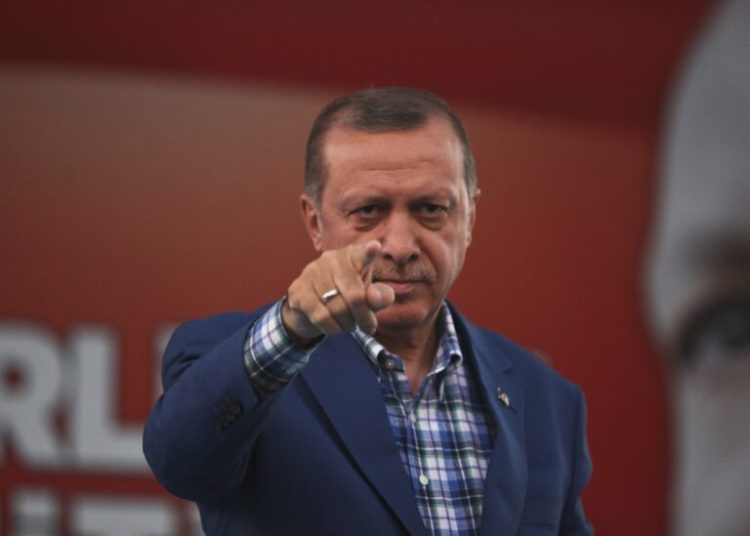Nordic Monitor
Turkey’s massive witch-hunt against critics of its Islamist President Recep Tayyip Erdoğan was expanded to East Asia, and Turkish nationals living in South Korea were indicted on dubious terrorism charges by a Turkish prosecutor, a judicial document revealed.
The investigation was based on spying files created at the Turkish Embassy in Seoul between 2016 and 2018.
As a part of Turkey’s global witch-hunt, Turkish diplomats systematically spied on critics of the president, collected information on Turks living abroad and transmitted it to headquarters while enjoying the privileges and immunities described in international conventions. In some countries Erdoğan’s envoys coordinated the local elements of intelligence operations carried out by Turkish intelligence agency (MİT) on foreign soil to abduct Turkish nationals.
The document obtained by Nordic Monitor indicate that Turkish diplomats gathered information on Erdoğan opponents believed to be affiliated with the Gülen/Hizmet movement, a group critical of President Erdoğan, and that Turkish educators, representatives of local associations and businessmen living in South Korea had been profiled by Turkish diplomats. The information that was reported to the foreign ministry in Ankara was later used in a criminal indictment for a charge of terrorism by Turkish prosecutor Adem Akıncı. According to a December 20, 2018 decision by Akıncı, the Ankara Chief Public Prosecutor’s Office launched a separate investigation (file no. 2018/ 229811) into 17 Turkish nationals who were living in South Korea at the time. They were charged with “membership in a terrorist group” by Akıncı.
Judicial documents dated December 20, 2018 exposed how spying activities of the Turkish Embassy in Seoul triggered a criminal investigation in Turkey. (The names and addresses of the Turkish nationals have been redacted for security reasons.):
As previously disclosed by Nordic Monitor, the foreign ministry sent lists of profiled Turkish nationals in two CDs to the Ankara Chief Public Prosecutor’s Office, the national police and MIT on February 19, 2018 via an official document for further administrative or legal action, the punishment of their relatives back in Turkey and the seizure of their assets.
Public prosecutor Akıncı, who received the foreign ministry document on February 23, 2018, forwarded the classified CDs including information on 4,386 Erdoğan critics to the Organized Crimes Unit of the Ankara Police Department for further action. The police conveyed the results of its investigations to the public prosecutor.
According to judicial documents released by the Ankara 4th High Criminal Court on January 16, 2019, the foreign ministry compiled a long list of foreign entities that were owned and/or operated by people who were seen as close to the Hizmet/Gülen movement, a group critical of the Turkish government, in 92 countries in the Americas, Europe, Asia and Oceania.
Moreover, Nordic Monitor revealed how MIT infiltrated refugee camps in Greece in order to spy on opponents who were forced to flee to Greece to escape an unprecedented crackdown in neighboring Turkey.
It is clear that Turkish diplomatic missions violate the domestic laws of receiving states and the principles of international law by conducting unlawful information-gathering campaigns and sweeping intelligence operations.
The immunities and privileges of diplomats and consular staff are governed by international conventions. However, diplomats enjoying the privileges and immunities described in the Vienna Convention on Diplomatic Relations are under a duty to respect the laws and regulations of the receiving state and to avoid interfering in its internal affairs as detailed in Article 41. Similarly, consular staff are granted limited privileges and immunities by the Vienna Convention on Consular Affairs, but the host state authorities can start investigations and prosecute any of the personnel if they perpetrate crimes inside or outside the consulate premises, according to Article 43 of the convention.

Turkish diplomatic missions continue systematic spying on Turkish government critics on foreign soil as confirmed by Foreign Minister Mevlüt Çavuşoğlu in February, 2020. Çavuşoğlu said Turkish diplomats assigned to embassies and consulates have officially been instructed by the government to conduct such activities abroad. “If you look at the definition of a diplomat, it is clear. … Intelligence gathering is the duty of diplomats,” Çavuşoğlu told Turkish journalists on February 16, 2020 following the Munich Security Conference, adding, “Intelligence gathering and information collection are a fact.”
In his interview with The Globe and Mail, Turkish Ambassador to Canada Kerim Uras also admitted to spying on 15 Turkish-Canadians. “Any embassy would focus on the threats targeting their countries. That’s what every embassy does,” he told The Globe and Mail.
Turkish Ambassador to Uganda Kerem Alp spoke to the state-run Anadolu news agency in March and confirmed that Turkish diplomats collect information on the business activities of Erdoğan critics living abroad and profile their companies as if they were part of a terrorist organization. Alp also revealed how the embassy was gathering information on medical staff, educators and humanitarian volunteers working for Ugandan institutions. “There were some FETO followers who had sought to hide in Uganda and were working in schools or hospitals. … They have been disguising themselves as humanitarian workers,” he told the news agency. FETO is a derogatory term coined by the Turkish government to refer to the movement.

The crackdown on Erdoğan critics throughout the country intensified in the aftermath of the corruption scandal of December 2013 that incriminated Erdoğan, his family members and his business and political associates. Immediately after the corruption investigation, Erdoğan accused the police officers, judges and prosecutors involved in the case of mounting a coup against his government and claimed they were linked to the Gülen movement, which he branded a “parallel state.”
The crackdown on critics and the purge of government officials that were initiated in the aftermath of the December 2013 corruption probes accelerated after a failed coup in July 2016, giving Erdoğan a pretext to pursue a mass purge with no administrative or judicial probes. The government has rounded up over half a million people from the Gülen movement since 2016, mainly on coup, terrorism or defamation charges. The witch-hunt aims to suppress civil society, silence critical voices and stifle the right to dissent, while Erdoğan continues to transform the Turkish democracy into a dictatorship.
In May 2016 the Turkish government designated the movement, led by US-based Turkish Muslim scholar Fethullah Gülen, as a terrorist entity without any evidence that Gülen or people affiliated with the movement committed any terrorist acts. Then, a coup was attempted in July 2016, reportedly at Erdoğan’s direction, as a pretext for an ensuing crackdown. Following the failed coup, which was called “a gift from God” by Erdoğan, thousands of Turkish citizens were forced to flee their homes due to his anti-democratic rule and a still-ongoing purge of government critics.
Erdoğan then moved Turkey away from the core values of the EU by using the coup to restrict democratic rights and erode the rule of law. In the aftermath of the abortive putsch, the Turkish government violated international law by arresting tens of thousands, including journalists, human rights defenders, academics, Kurdish MPs, foreign reporters, civil servants and businessmen; purging more than 130,000 civil servants and 20,571 members of the military from their jobs without any effective judicial or administrative investigation; investigating more than a half million people on dubious terrorism allegations; and shutting down media outlets and seizing their assets. Torture allegations have often been voiced by human rights defenders since the failed coup.












